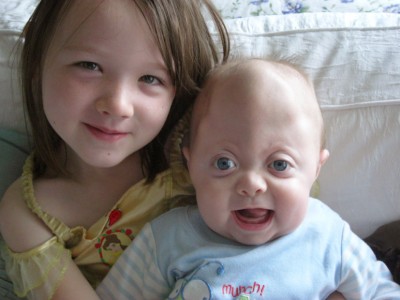Archived
Please note, this page may contain outdated information or subject matter.
 At just 10 months old Finley had his first major operation to rebuild his skull. With Action funding, specialists are testing a new treatment approach which could improve surgery in the future for children like him.
At just 10 months old Finley had his first major operation to rebuild his skull. With Action funding, specialists are testing a new treatment approach which could improve surgery in the future for children like him.
Finley was born with Apert syndrome – a rare condition that causes a range of health problems including craniosynostosis which affects the skull.
In craniosynostosis the plates of the skull fuse together too early, while the baby is still in the womb. The head shape is distorted and, as the child grows, there is restricted room for the brain. This can lead to pressure within the skull and the need for major surgery.
Craniosynostosis can occur with no known cause or, like Finley’s, be linked to a genetic condition. In Apert syndrome, it is especially complex and Finley has experienced hearing, sight and breathing problems, and issues with his jaw.
When he was just 10 months old, surgeons painstakingly dismantled and reshaped Finley’s skull, creating a new forehead. Before this, his eye sockets were so shallow that he couldn’t close his eyes.
“We had to place our child in somebody else’s hands. It was terrifying,” says Diane. “But if Finley had been left to develop pressure on his brain, it would have affected all of his development. You are between a rock and a hard place.”
Further surgery when Finley was four was particularly traumatic: “He was in a lot of pain and kept saying ‘help me, help me Mummy’. It was the hardest time of our lives as parents,” says Diane.
Now nine, Finley attends mainstream school and is doing well. But he is likely to need further surgery in the future.
With Action funding, researchers hope to spare children with craniosynostosis from repeat operations and make less invasive procedures work better.
Lead researcher Dr Dagan Jenkins, at the UCL Great Ormond Street Institute of Child Health, says: “While current surgical procedures are very effective, they can be complicated and require many hours under general anaesthetic.”
The team have identified a drug – already approved to treat other conditions – which could be helpful. “We hope that applying this drug to the site of surgery will improve the effectiveness of less invasive procedures without the need for follow-up operations – meaning that affected babies can look forward to a more typical childhood,” says Dr Jenkins.
For families like Finley’s this would be very welcome.
“With any surgery and any general anaesthetic there are risks. Anything that makes the surgery more effective and reduces the number of operations needed could have a huge impact on families,” says Diane.
